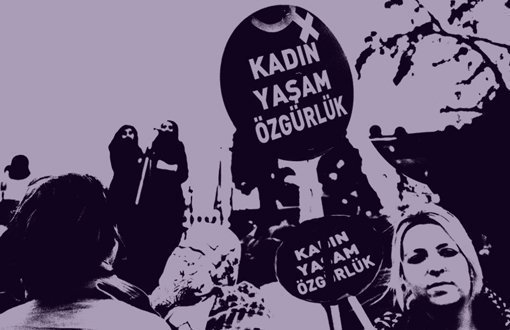Click here to read the article in Turkish / Haberin Türkçesi için buraya tıklayın.
Human Rights Watch (HRW) has published its 2016 World Report.
On the press conference held today (January 27) in Cezayir assembly hall, HRW Executive Director Kenneth Roth and HRW Turkey researcher Emma Sinclair-Webb has pointed out to the crackdown on media, prohibitions of civilian watch and observers as well as the increasing violence in the provinces under curfew and have expressed that the environment for human rights in Turkey had deteriorated.
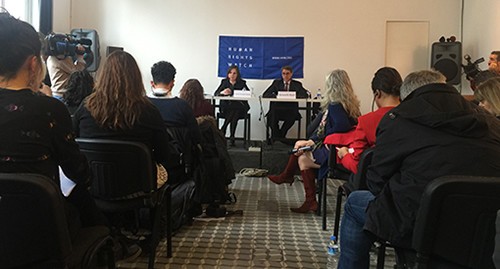
Sinclair-Webb and Roth have also addressed to the refugee policy. Roth pointing out to the agreement between Turkey and EU designed to prevent irregular migration to the EU in exchange for 3 billion euro, has noted that the agreement should not serve to deny access to effective protection to refugees and should provide that Turkey would be the state to which the refugees would make their first application.
Roth, answering the questions of the journalists, has noted that he did not assume that any results could be accomplished in Geneva under these circumstances.
In the 659-page World Report 2016, Human Rights Watch reviews human rights practices in more than 90 countries under the chapters “Renewed violence in the Southeast”, “Freedom of Expression, Association and Assembly”, “Judicial Independence”, “Refugees and Migrants”, “Women’s Rights” and “Key International Actors”.
“Even assembly considered crime”
It has been noted that government-led restrictions on media freedom and freedom of expression in Turkey in 2015 went hand-in-hand with efforts to discredit the political opposition and prevent scrutiny of government policies in the run-up to the two general elections.
“In the first six months of 2015, Turkish authorities were responsible for almost three quarters of requests to Twitter worldwide for removal of tweets and blocking of accounts. In March, parliament passed new legislation allowing ministers to request the Communications Directorate (TİB) to block online content or remove it within four hours to “protect life and property, national security, the public order, [or] to prevent crime and to protect general health.” A court must approve the decision within 48 hours.
“The authorities frequently imposed arbitrary bans on public assemblies and violently disperse peaceful demonstrations, in some cases using powers conferred by a new domestic security law passed in March. For the first time ever, the Istanbul governor’s office banned the annual Istanbul Gay Pride march in June 2015, citing vague concerns about counter-demonstrations. Police dispersed groups who had assembled peacefully using tear gas and water cannons.
“In May, the Istanbul prosecutor’s office launched a terrorism and espionage investigation of Cumhuriyet newspaper for posting a video and news report showing trucks laden with weapons allegedly en route to Syria. President Recep Tayyip Erdoğan subsequently made speeches strongly condemning the newspaper and filed a separate criminal complaint. In November, the newspaper’s editor Can Dündar and journalist Erdem Gül were arrested and jailed pending trial.
“In October, police raided the İpek Media group, including TV stations and newspapers, two days after the government had appointed trustees to run the parent company, Koza İpek Holding. Firing the staff and appointing new editors, both TV stations and newspapers are now pro-government organs.
“Journalists continued to be fired from mainstream press outlets in 2015 for critical reporting, commentary, and tweets. Social media postings critical of the president and politicians by ordinary people also led to criminal defamation charges and convictions. A new trend in 2015 saw courts in several cases order pretrial detention of people for several months for allegedly insulting Erdoğan via social media or during demonstrations.
“Judicial decisions of jurists considered a crime”
“Long-standing defects in Turkey’s justice system include threats to judicial independence, a pattern of ineffective investigation into abuses by security forces and other state actors, excessively long proceedings, and politically motivated prosecutions. The AKP government in 2015 continued efforts to purge the police and judiciary of alleged supporters of the Gülen movement.
“During 2015, prosecutors, judges, and police officers with perceived links to the Gülen movement were jailed and charged with plotting against the government and membership of a terrorist organization. The main evidence being cited against judges and prosecutors at time of writing was decisions taken in the course of their professional duties rather than any evidence of criminal activity”.
“No status for refugees”
The report points out that the government only grants Syrians temporary protection rather than refugee status, while other nationalities of asylum seekers do not receive that.
“The most notable shift in Turkey’s Syria policy came after the July Suruç bombing when Ankara reached an agreement with the United States to open a Turkish airbase for coalition airstrikes against ISIS and to play a limited role in airstrike.
“Turkish government schools are officially available to all Syrian primary and secondary school-age students registered for “temporary protection,” but at time of writing more than 400,000 children—over two-thirds of all Syrian children in Turkey—were receiving no form of education.
“A growing number of refugees, asylum seekers, and migrants attempted to cross by sea from Turkey to the Greek islands in 2015, making it the main transit route into the European Union. More than 627 of people had died trying to make the crossing from Turkey to Greek islands at time of writing. In September, Turkish authorities prevented thousands of asylum seekers from attempting to cross the land border into Greece. At time of writing, Turkey had all but closed its borders to Syrian asylum seekers and was summarily pushing back Syrians detected as they try to cross”.
“Law on violation of women ratified but not being applied”
“Despite Turkey’s ratification of the Council of Europe Convention on Preventing and Combating Violence against Women and Domestic Violence, violence against women remains a significant concern in Turkey. The murder and attempted rape of Özgecan Aslan in Mersin in February sparked massed protests calling for government action to stop the killing of women including their partners”.
*Click here to read the full report in English





.jpg)
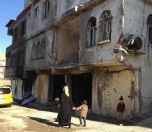
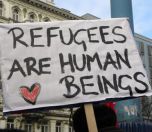
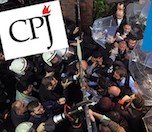
.jpg)



